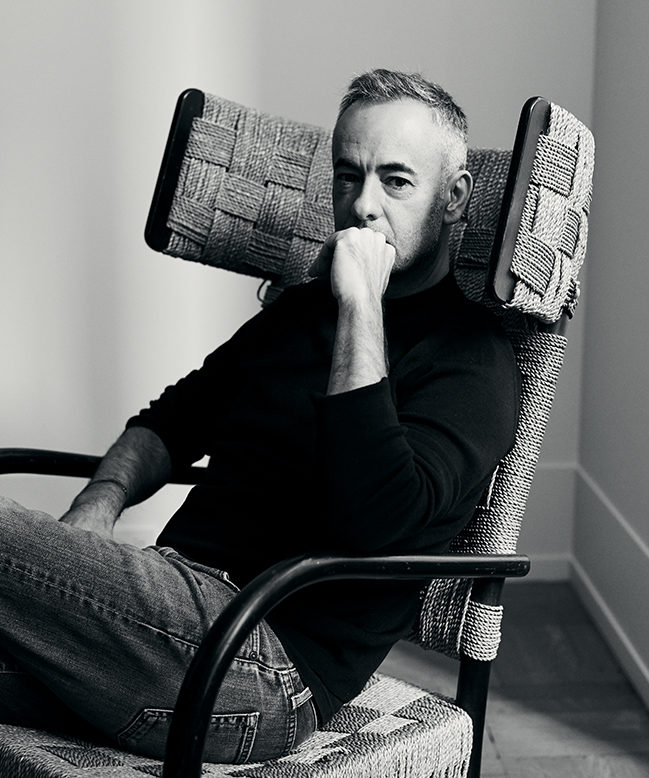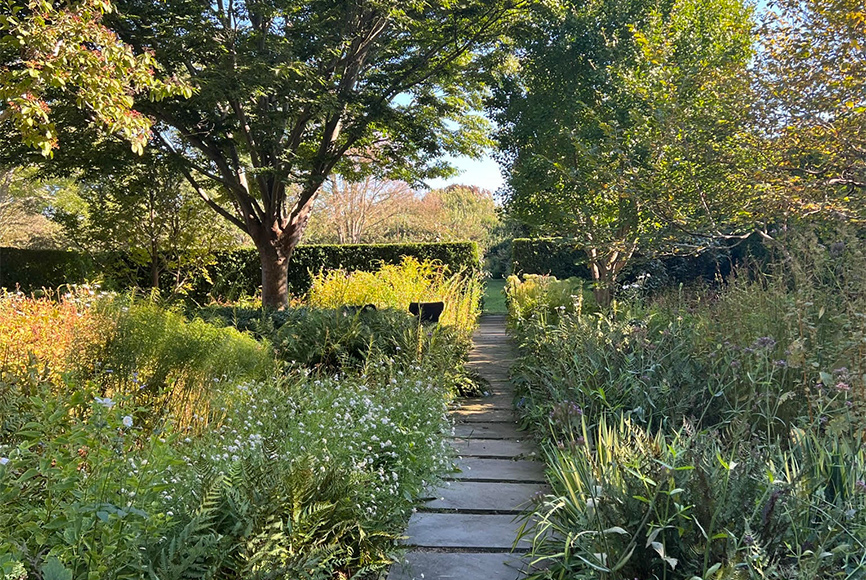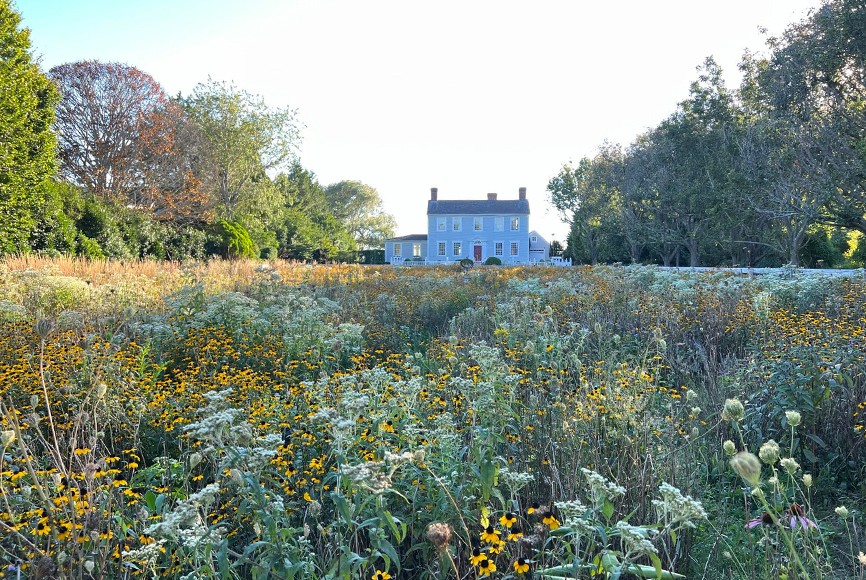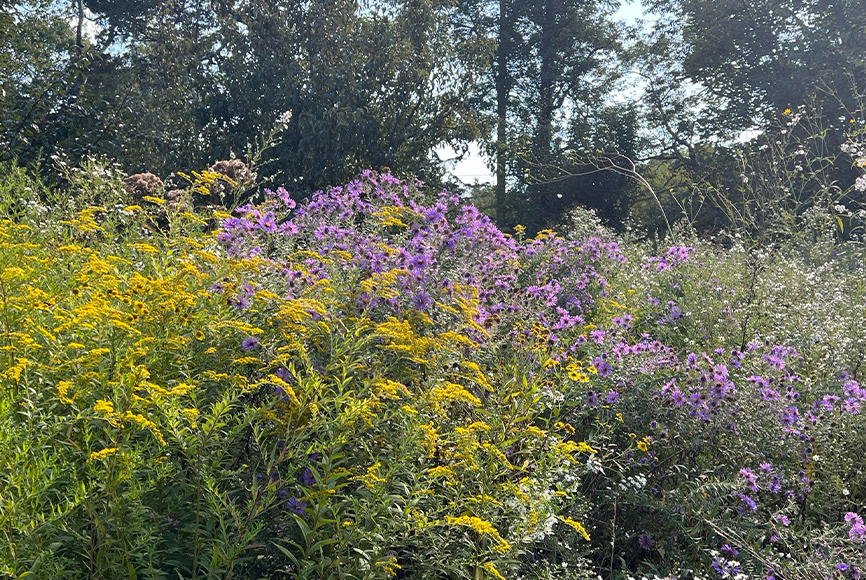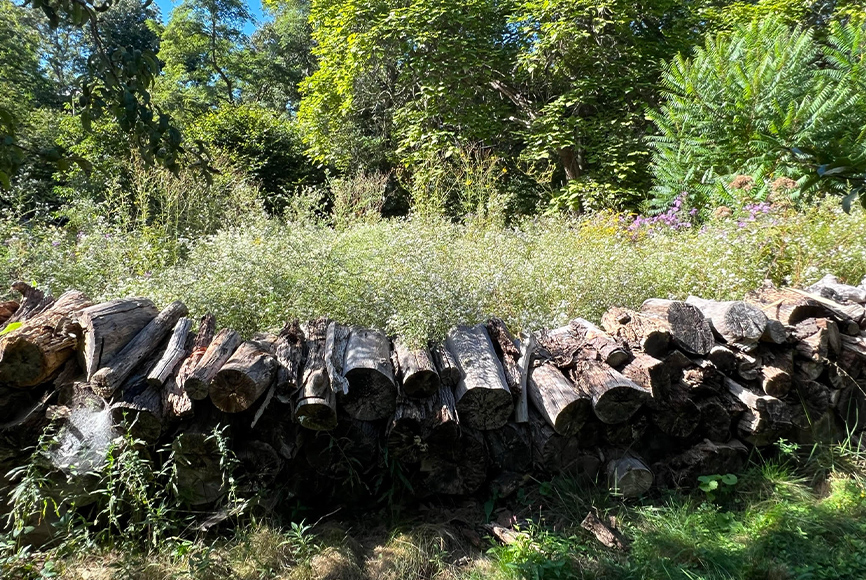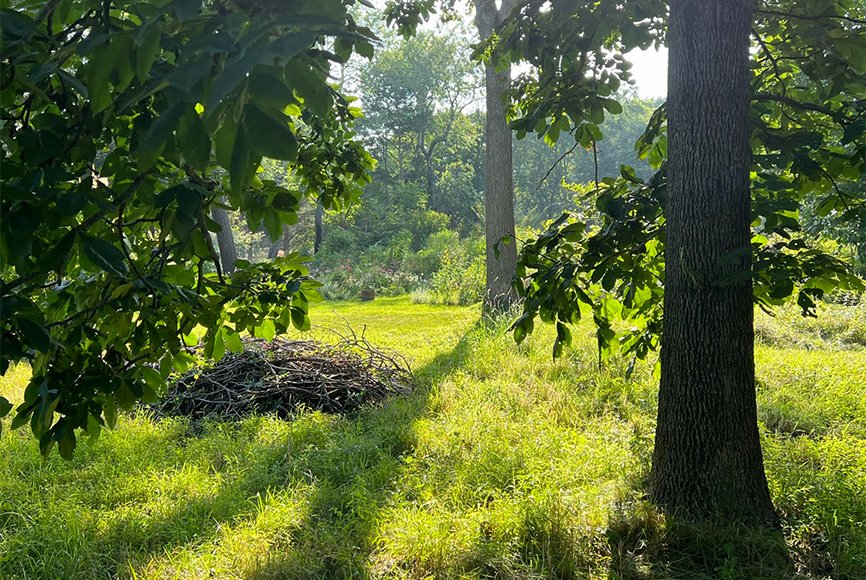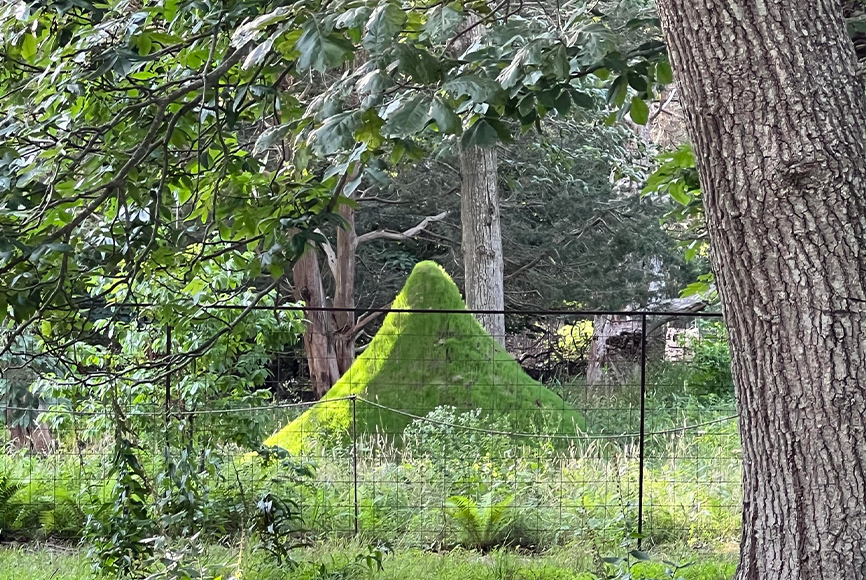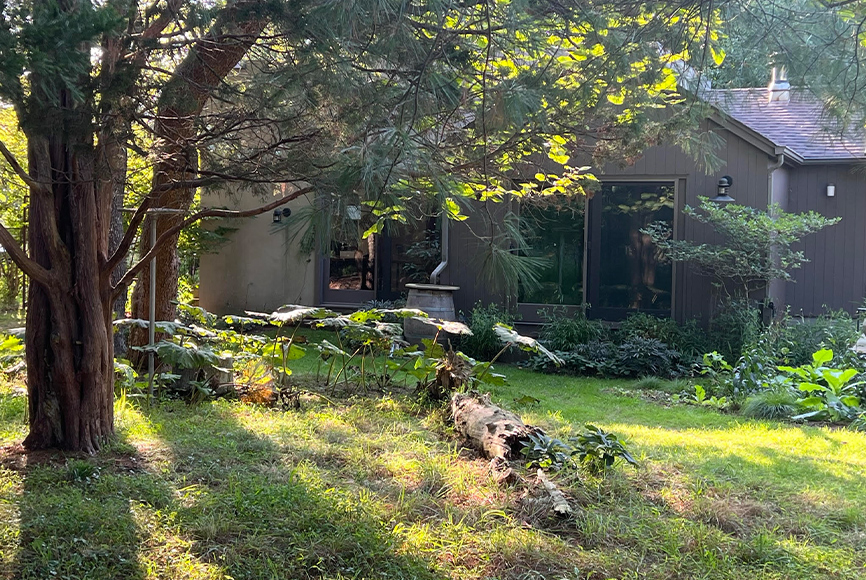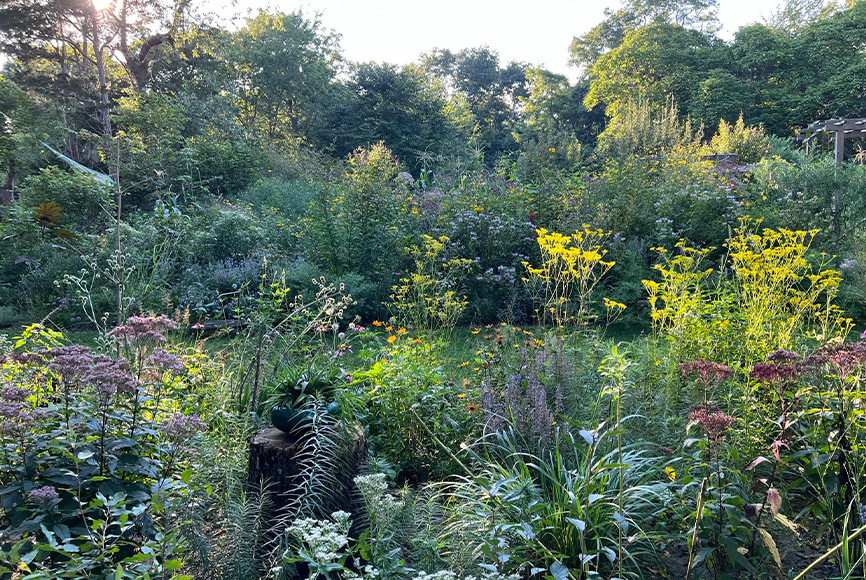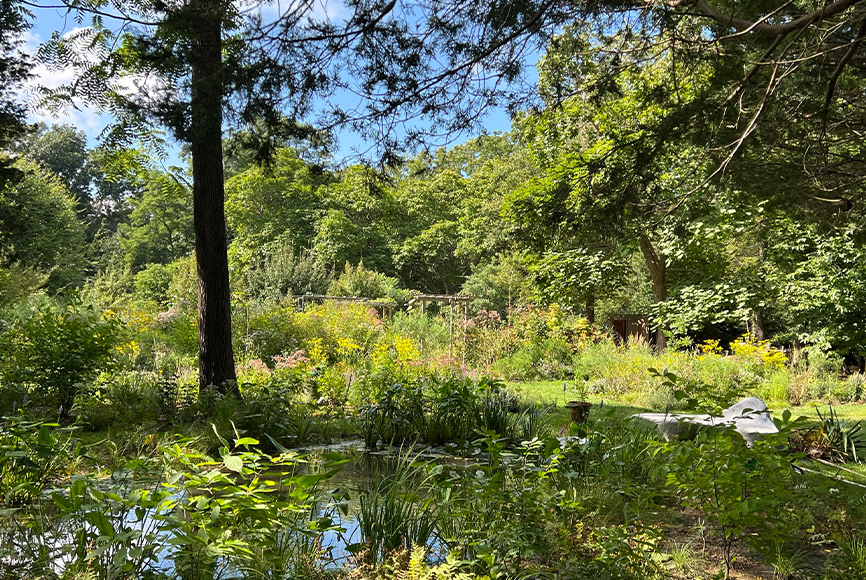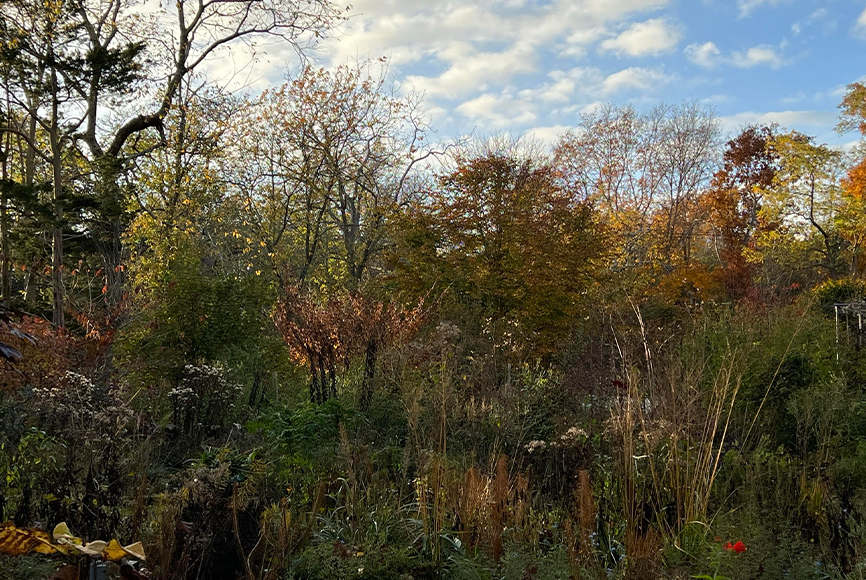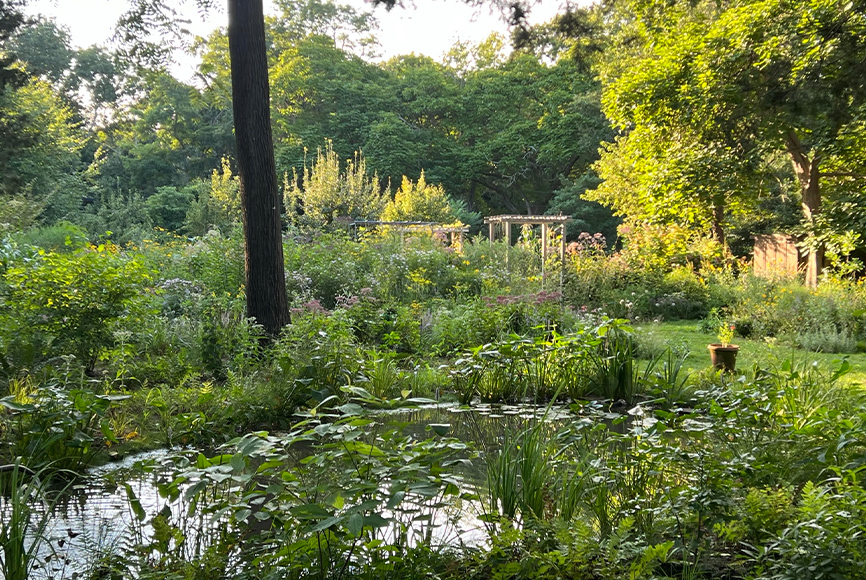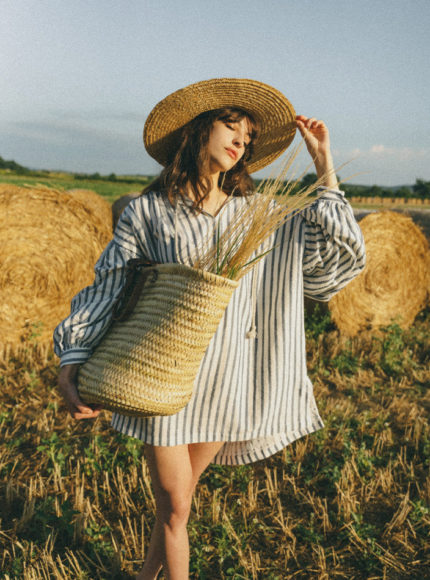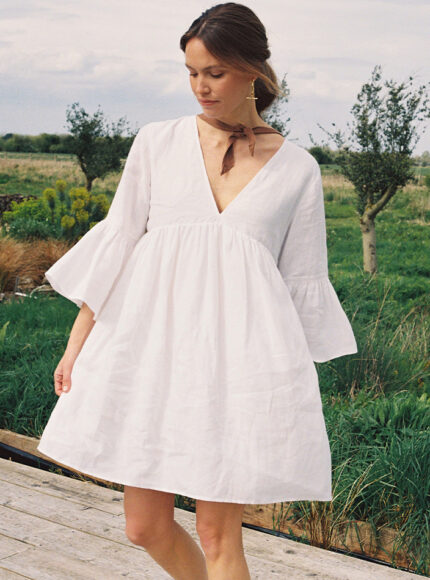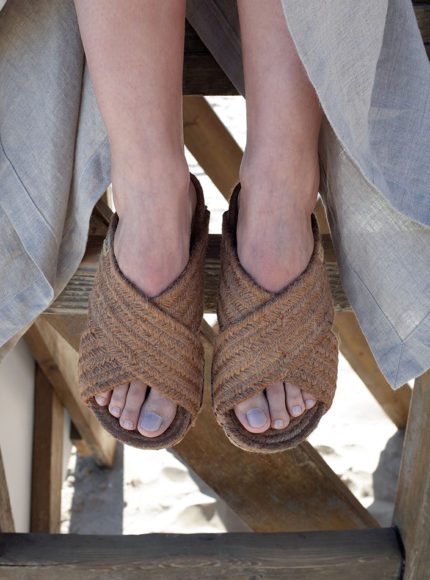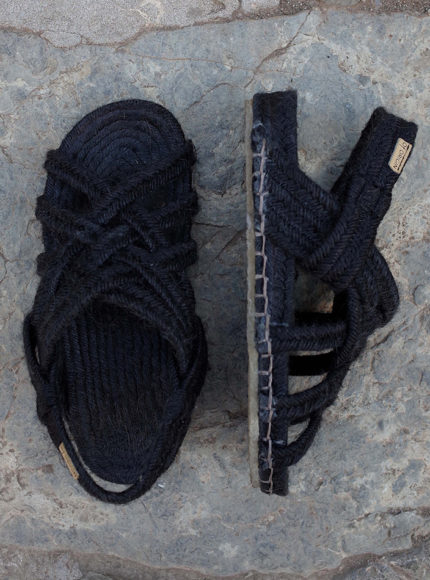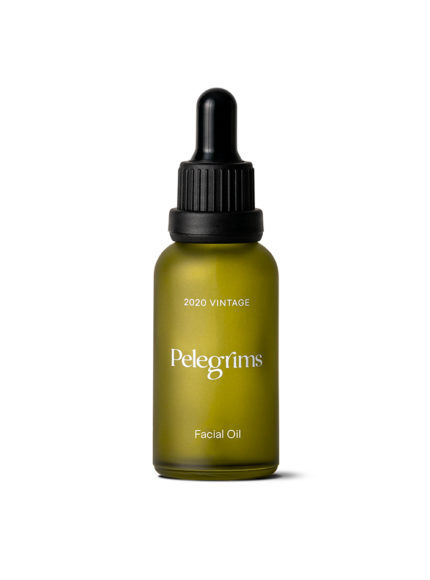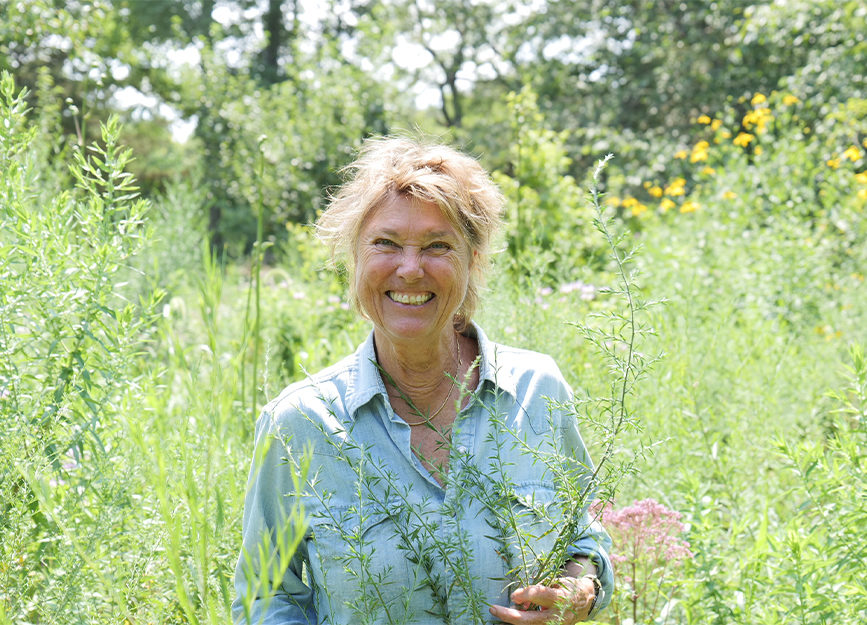
Edwina von Gal Photographed by Sophie Griffen
Photographed by Edwina von Gal
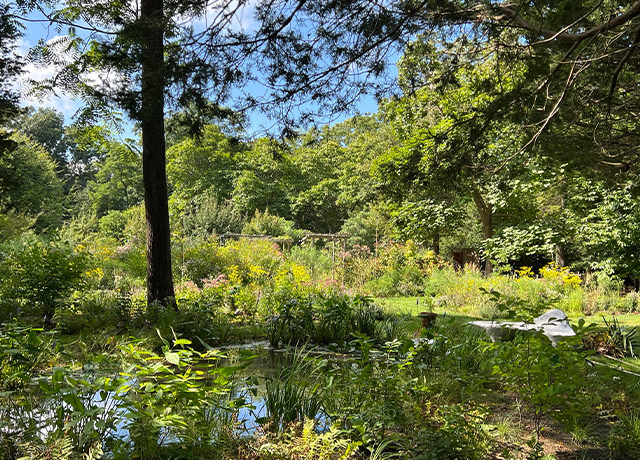
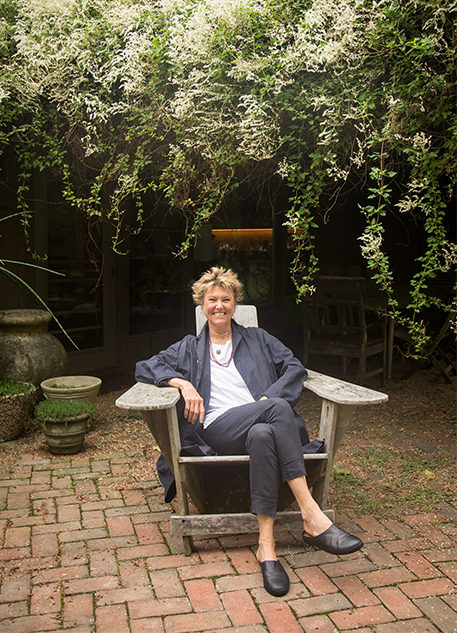
Edwina von Gal Photographed by Lindsay Morris
Food & Garden
10 Tips for Organic Gardening from Edwina von Gal
Conventional landscape practices are contributing to harming the earth in so many ways and none of them is necessary. You are in charge, if you choose to use pesticides (insecticides, herbicides, fungicides, etc) think about why you are risking the health of your family, pets and the planet, when the alternative is so much more interesting, totally accessible, and very beautiful.
Edwina von Gal, Founder of Perfect Earth Project
1. Assess
- Take a good look at your property and get to know it well.
- What Eco Region are you in? EcoRegion Map will guide you in choosing plants that are right for your place.
- Note the conditions that are basic to plants: sun, shade, soil, slope.
- Look at natural places nearby with the same conditions to see what is growing there. Use a plant ID app or, better yet, a person who knows. Take photos of what looks lovely to you.
- Think carefully about not just what you want to do to your property, but what your property can do for you. Instead of wrestling it into something it doesn’t want to be, work with it, not against. A world of wonder awaits.
2. Reduce / ReThink your Lawn
- How much of your lawn do you actively use? Mark it off. (area rug vs wall to wall?) Convert the rest to native plants. They are so much less work and so much more alive.
- Maintain the lawn you keep by mulch mowing and leaving clippings, encouraging clover (it fixes nitrogen) and watering wisely. Add compost (if needed) and overseed in the fall. No fertilizers, NO pesticides.
3. Plant Natives
My tips for organic gardening are always going to promote habitat and biodiversity. Plant the plants that lived there in health and happiness for eons before people arrived to “care” for them. Plant lots of different species (monocultures are a cop out) to attract lots of different birds, bees, bats, etc.
4. Compost and Close the Food Loop
Keep all the organic matter (biomass) your property makes and feed it back to the soil.
Looking for a great at home food composter? Our favorite is Mill and you can learn more about them here!
5. Stop Fertilizing
The plants that are right for the soil and fed with their own (composted) biomass, don’t need fertilizers*. We get more into why choosing native plants can be so incredibly useful for having lower chemical inputs here!
6. Stop Using Pesticides
All life forms need to eat, and we need them to eat and thrive as part of a complete ecosystem. If caterpillars are eating your leaves, rejoice, plants evolved to be eaten and those caterpillars will be food for baby birds, or grow up to become moths and butterflies. They eat far fewer leaves than arborists prune off in a season.
When it comes to tips for organic gardening, you really just cannot include using pesticides in any form. We deep dive more into the healthy and environmental issues behind pesticide use in our podcast with Zach Bush, MD!
7. Stop Chopping
Why do we all feel compelled to prune and shear and shape? Domination? OCD? Left to grow as they like plants have lovely shapes that are integral to their resiliency. The deadwood they harbor is a unique bird feeder ecosystem. Keep in mind–every cut is a wound–try to resist whacking away at a perfectly formed fellow life form.
9. Water Right
Ideally, there are very few plants in your garden that need watering because you have chosen natives that evolved without it. But, just in case you are in a drought, you might want to ease the stress, and give your plants a good deep drink. Why is it so hard for everyone to water correctly? Think like rain: water seldom, water deep. That means maybe once a week and for at least 45-60 min. Of course, your soil type will have some bearing, so check and see how deep your watering actually got; 12-18” would be nice.
10. Learn to Let Go
Tips for organic gardening must always partner with nature, not work against it. Tightly manicured gardens are not living their lives, they are living yours, which generally means there isn’t much wild life accommodated, and they are actually quite dead. Go for life. It is our future in your hands.
More tips for organic gardening!
For more information, read the PRFCT Earth LeafLet: Basics of Nature Based and check out the super helpful Resources at Two Thirds for the Birds www.234birds.org!
Words by Edwina von Gal, Founder of Perfect Earth Project. Learn a lot more about this sort of content in Cora’s podcast with Edwina!
















